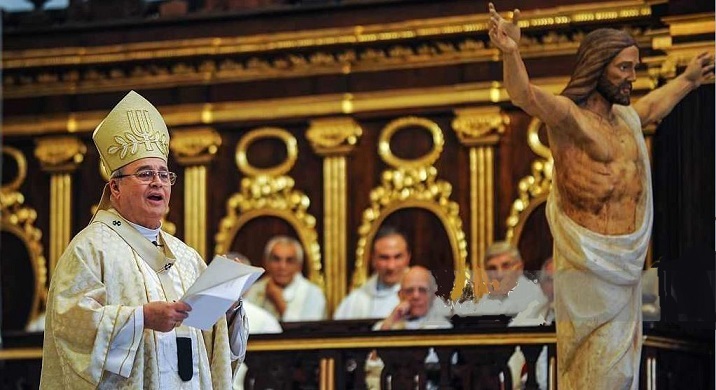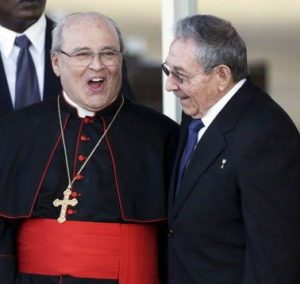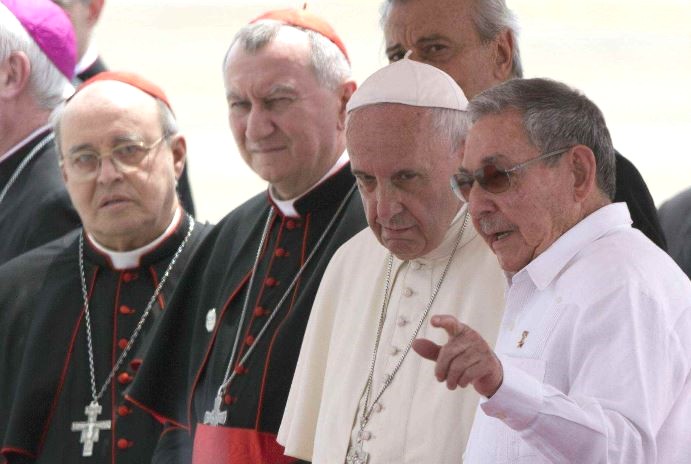
No longer archbishop, Ortega remains a servant of the Cuban people
In his final homily as Archbishop of Havana on Saturday (May 7), Cardinal Jaime Ortega y Alamino told his audience at the city’s cathedral that he will continue to serve the people of Cuba and thanked the nation’s government for engaging in a dialogue with the Catholic Church that was “not understood by many inside and outside the country […] the Church [and] the government structures.”
He also thanked President Raúl Castro for giving “a decisive boost to this dialogue” and accepting the Church’s mediation in the release of almost 150 prisoners beginning in 2010. Ortega credited Castro with accepting Pope Francis’ mediation “for a rapprochement between Cuba and the United States, in which important steps have already been taken.”

“In both events I was able to participate in person,” Ortega added. For that reason, “my special gratitude” to the president.
On April 26, Pope Francis accepted the Archbishop’s resignation, submitted five years ago when Ortega reached the age of 75. The Pope replaced him with Msgr. Juan de la Caridad García, the Archbishop of Camaguey. (For more on the new Archbishop, click here.)
In his message, Ortega said that he “will continue to serve the Holy Father and the Church as a member of the College of Cardinals and will also continue to serve the Church in Cuba and our people in [my] status as a priest. That’s because the bishop is a priest and serves until death.
“And I’ll continue to baptize, hear confessions, confirm, attend to the sick and celebrate the Holy Mass daily. The bishop, like the priest, never retires.”
After thanking all the members of the Cuban Church who have supported him in his 50 years in the priesthood, he thanked “the authorities of my country for all the possibilities of overcoming critical periods and difficult moments, and for being capable of advancing, without retreats, down a road of dialogue that was not understood by many […]”
That was an allusion to the criticism he received from many Cubans living in the United States who accused Ortega of being too cozy with the Castro government. Others, in turn, saw that the Church’s respectful yet firm relationship with the government was more likely to produce results than an attitude of hostility or confrontation.
“I especially thank President Raúl Castro for the decisive boost he gave to this dialogue,” Ortega went on. “He accepted the active and mediatory participation of the Catholic Church in the release of almost 150 prisoners and later expressed that all the credit for that action belonged to the Church.

“Thanks also to the President for having accepted the good offices of Pope Francis for a rapprochement between Cuba and the United States, in which important steps have already been taken. In both events, I was able to participate in person. For that reason, my special gratitude.”
The Cardinal closed by praising Jesus for guiding him throughout his life. To Him Ortega offered “the years of my life that will take me to meet him. To Him, all honor and glory for centuries and centuries. Amen.”
A full transcript of his homily, in Spanish, appears in the Archbishopric’s magazine, “Palabra Nueva.” To read it, click here.
[Photo at top of Ortega saying his last Mass as Archbishop of Havana on May 7.]

